AKADEMIYA2063: A Successful Case of Localization
By Tsitsi Makombe, Layih Butake, Alix Underwood, and Sam Benin
02/05/2024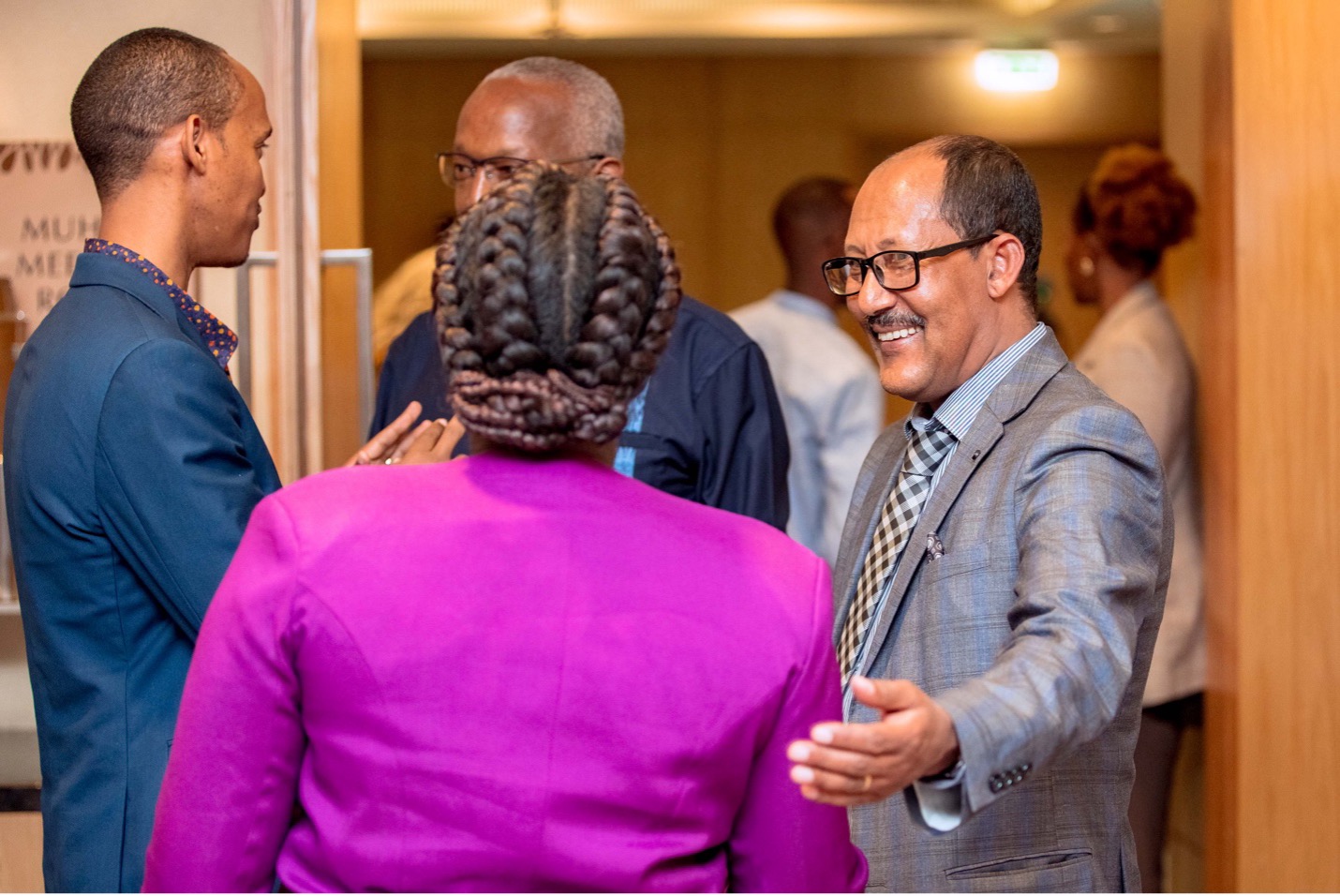
The Comprehensive Africa Agriculture Development Programme
In 2003, in Maputo, Mozambique, African Union (AU) countries adopted the Comprehensive Africa Agriculture Development Programme (CAADP) through the Maputo Declaration on Agriculture and Food Security in Africa, which placed agriculture at the heart of Africa’s development agenda. They pledged to allocate 10% of their annual national budgets to the agricultural sector by 2008 in pursuit of a 6% annual agricultural growth rate. With 60% of the world’s arable land, these leaders saw the potential of Africa’s agricultural sector to contribute to economic growth and development. In 2014, African leaders reaffirmed their commitment to CAADP with more ambitious targets — including ending hunger, halving poverty, tripling intra-African agricultural trade, and building resilience to climate variability for at least 30% of agricultural households — by adopting the Malabo Declaration.
Pursuing these goals required evidence and data to shape policies and monitor progress — including policy analysis and state-of-the-art technical capacities, capacity strengthening, and mutual learning among African countries.
As policy-oriented research on agrifood systems is IFPRI’s bread and butter, IFPRI, at the request of the African Union Commission (AUC) and the African Union Development Agency – New Partnership for Africa’s Development (AUDA-NEPAD), supported CAADP by establishing three programs: The Regional Strategic Analysis and Knowledge Support System (ReSAKSS) (founded 2006); the African Growth and Development Policy (AGRODEP) Modeling Consortium (2010), and the Malabo Montpellier (MaMo) Panel (2017).
These programs have made significant strides toward accomplishing their goals, but IFPRI and its partners knew from day one that they would not reach their full potential until they were under African leadership. Only then would they be truly sustainable and able to meet the needs of their target audience: African countries. In 2020, a new organization, AKADEMIYA2063 was born to support “an Africa with the expertise we need, for the Africa we want.”
Here, we explore the achievements of these programs and the transition to AKADEMIYA2063 leadership.
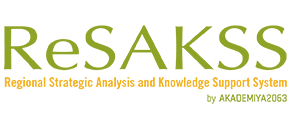

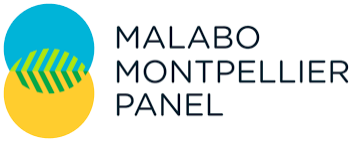
The Regional Strategic Analysis and Knowledge Support System
ReSAKSS, established in 2006, provides data and knowledge products to facilitate CAADP benchmarking, review, and mutual learning processes. ReSAKSS was facilitated by IFPRI in partnership with AUC, AUDA-NEPAD, leading regional economic communities (RECs), and three Africa-based CGIAR centers: The International Institute of Tropical Agriculture, the International Livestock Research Institute, and the International Water Management Institute.
From the get-go, ReSAKSS has helped to promote evidence-based policy planning and implementation by helping African countries assess their progress toward CAADP and Malabo Declaration goals. ReSAKSS tracks progress on more than 30 CAADP indicators using web-based knowledge products and a flagship Annual Trends and Outlook Report (ATOR). Since 2006, ReSAKSS has supported over 30 African countries with analysis for the first- and second-generation national agriculture investment plans—the vehicle for implementing CAADP. A 2015 external evaluation of ReSAKSS by Social Impact Inc noted that it was providing the right kind and level of information to support CAADP processes.
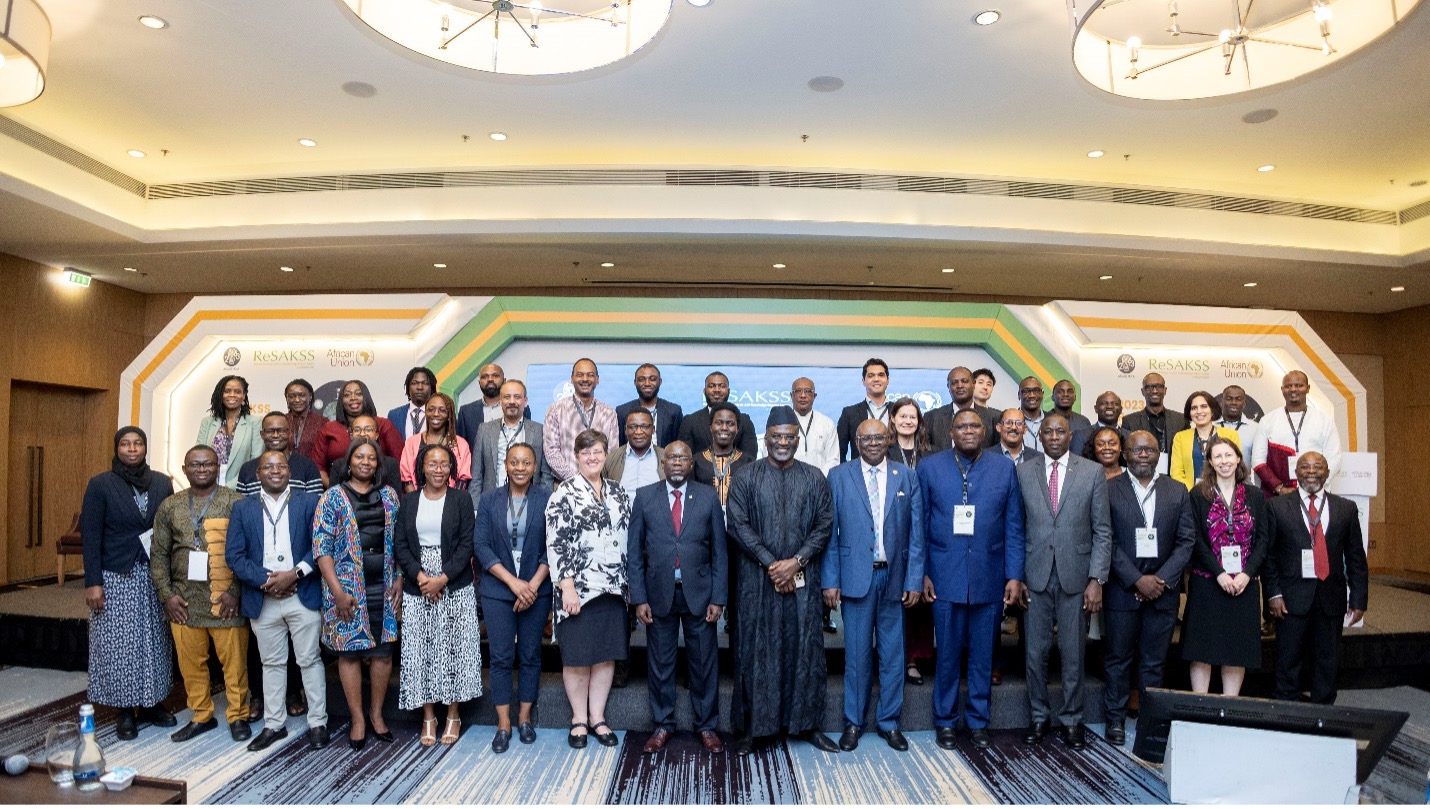
ReSAKSS Conference 2023
The African Growth and Development Policy (AGRODEP) Modeling Consortium
Since its founding in 2010, AGRODEP has sought to place African experts center stage in the African agricultural growth and development policy debate. AGRODEP provides its network of over 230 Africa-based members with access to 290 datasets, analytical and economic modeling tools, training courses, grants, networking opportunities, and other resources. In collaboration with ReSAKSS, AGRODEP members have provided policy analysis and advisory services in several African countries. They have also co-authored the Africa Agriculture Trade Monitor (AATM) reports—an annual flagship publication that provides statistics and analysis on Africa’s agricultural trade.
.jpg) AATM Launch at the 2023 Africa Food Systems Forum (AGRF)
AATM Launch at the 2023 Africa Food Systems Forum (AGRF)
The Malabo Montpellier Panel
The MaMo Panel, established in 2017, built on an earlier Montpellier Panel by placing greater emphasis on African initiatives. The panel is composed of 18 leading experts in international agriculture and serves as a bridge between researchers and policymakers. The panel works with African governments and civil society to identify positive developments across the continent. Panel members use these bright spots to identify innovations that can be replicated and scaled by other countries, sharing their findings via 12 reports to date.
The MaMo Panel hosts a biannual forum, which gathers high-level policymakers to promote dialogue on the evidence presented in its reports. An external evaluation of MaMo’s work from 2017 to 2020 revealed that, of the 22 stakeholders interviewed, half pointed to the panel’s outputs as playing an important role in shaping policies.
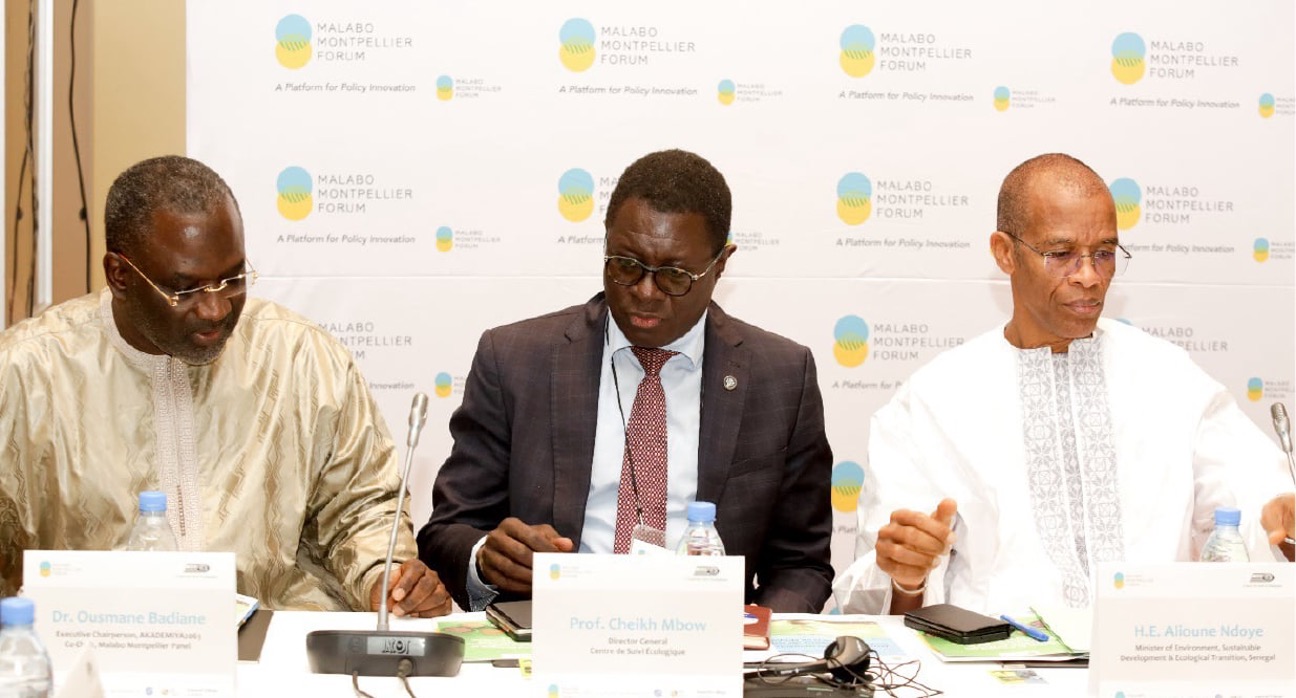
11th Malabo Montpellier Forum, 2022
Transition to AKADEMIYA2063 in 2020
With an eventual leadership transition in mind, IFPRI placed capacity building at the heart of the programs’ work. IFPRI’s initial goal was to transition the programs to an Africa-based organization in 2014. However, when 2014 rolled around, AUC and its partners were immersed in revamping commitments to CAADP. In consultation with AUC and with the support of USAID, IFPRI set a new goal to transition the programs by 2020. AKADEMIYA2063 was launched in July of that year.
The organization aims to meet the data, analytics, and mutual learning needs of African countries so that they, in turn, can meet the goals laid out in the AU’s Agenda 2063 — the set of broad continental development goals adopted in 2015. A first and critical step to achieving this mission was to ensure a smooth transition of ReSAKSS, AGRODEP, and the MaMo Panel to African leadership — in other words, successful localization.
Localization: The Experience of AKADEMIYA2063
Here are the fundamental ingredients for successful localization implemented by AKADEMIYA2063:
Continuity and expansion: Following the move from IFPRI to AKADEMIYA2063, ReSAKSS, AGRODEP, and the MaMo Panel have all continued and expanded their activities. For example, ReSAKSS continues to support the CAADP implementation across Africa, including monitoring country progress by supporting the continental CAADP biennial review process. To date, AKADEMIYA2063, in collaboration with IFPRI, has published four ATORs and, in partnership with AUC, continues to organize the ReSAKSS annual conference. As part of mobilizing a critical mass of local experts within Africa’s policy research community, AKADEMIYA2063 has also expanded the AGRODEP membership to almost 300 and added three new AGRODEP thematic networks on Sanitary and Phytosanitary (SPS) Measures, Resilience Index Measurement and Analysis (RIMA), and Climate Change. As for expansion, in three years, AKADEMIYA2063 grew from 30 to 53 staff members who represent 15 countries and eight strategic departments.
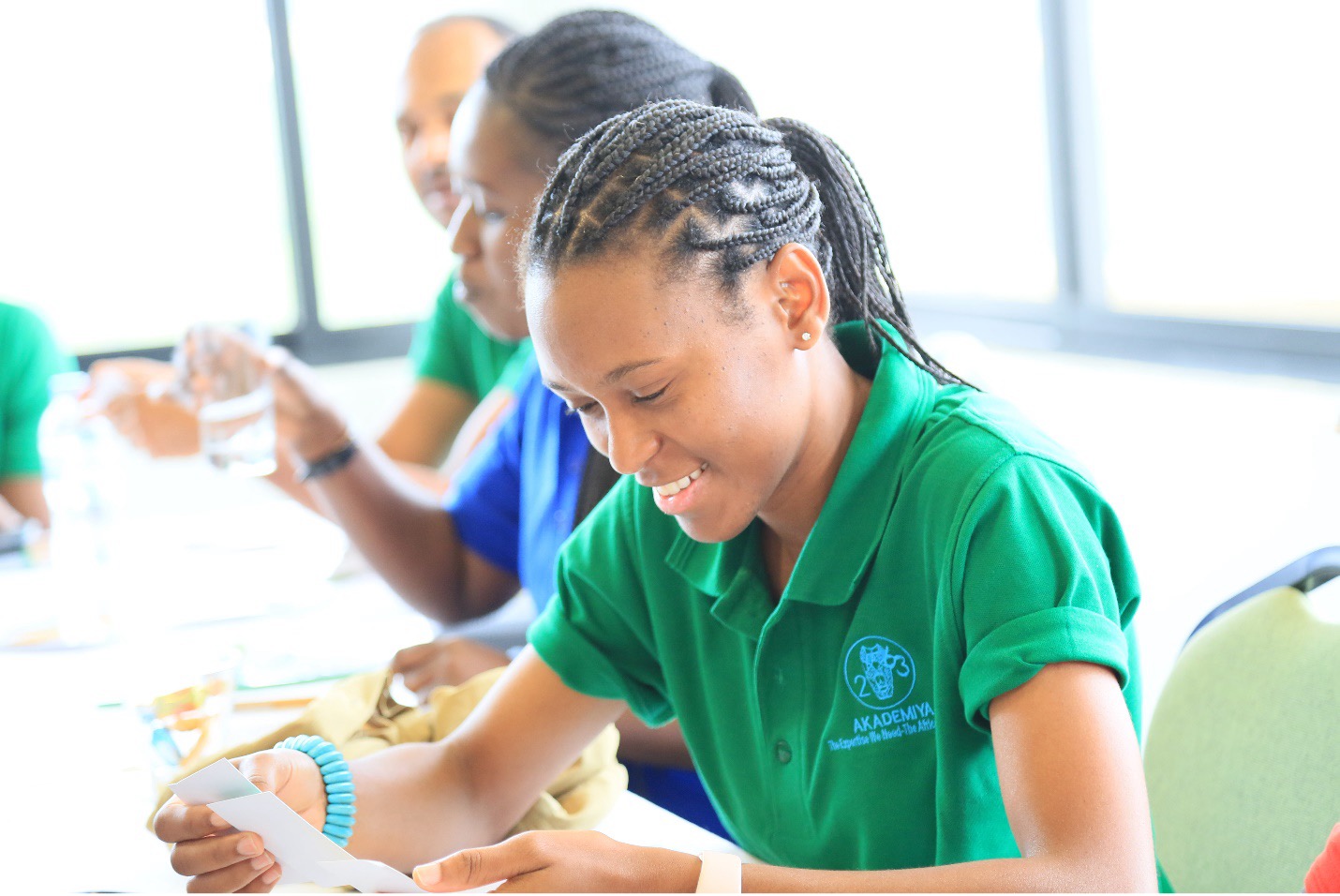 Staff Retreat 2022
Staff Retreat 2022
Innovation: As part of its expansion, AKADEMIYA2063 has added a new, innovative program: the Africa Agriculture Watch (AAgWa). This web-based platform uses remote sensing data and machine learning techniques to predict yields of several crops across the continent. AAgWa has used this data for a series of country forecast briefs that provide timely information for nine major crops across 47 African countries. Under AAgWa, AKADEMIYA2063 is also tracking greenhouse gas (GHG) emissions to help countries meet their climate goals. AKADEMIYA2063 has launched several other innovative projects that support various initiatives across Africa, including on nutrition, climate action, food safety, and intra-Africa trade and markets. For example, in partnership with AUC, USAID, Michigan State University, the African Network of Agricultural Policy Research Institutes (ANAPRI), and country climate stakeholders, AKADEMIYA2063 supports the Comprehensive Action for Climate Change Initiative (CACCI) in Ghana, Guinea, Rwanda, Senegal, and Zambia. The organization provides data, analytics, and capacity strengthening to help accelerate the implementation of Nationally Determined Contributions (NDCs) and National Adaptation Plans (NAPs) under the Paris Climate Agreement. Expansion and innovation also manifest as new partnerships. As of December 2023, AKADEMIYA2063 had forged over two dozen formal strategic partnerships with African and global partners. New partnerships and programs and a growing staff indicate that AKADEMIYA2063 is thriving as an Africa-based institute.
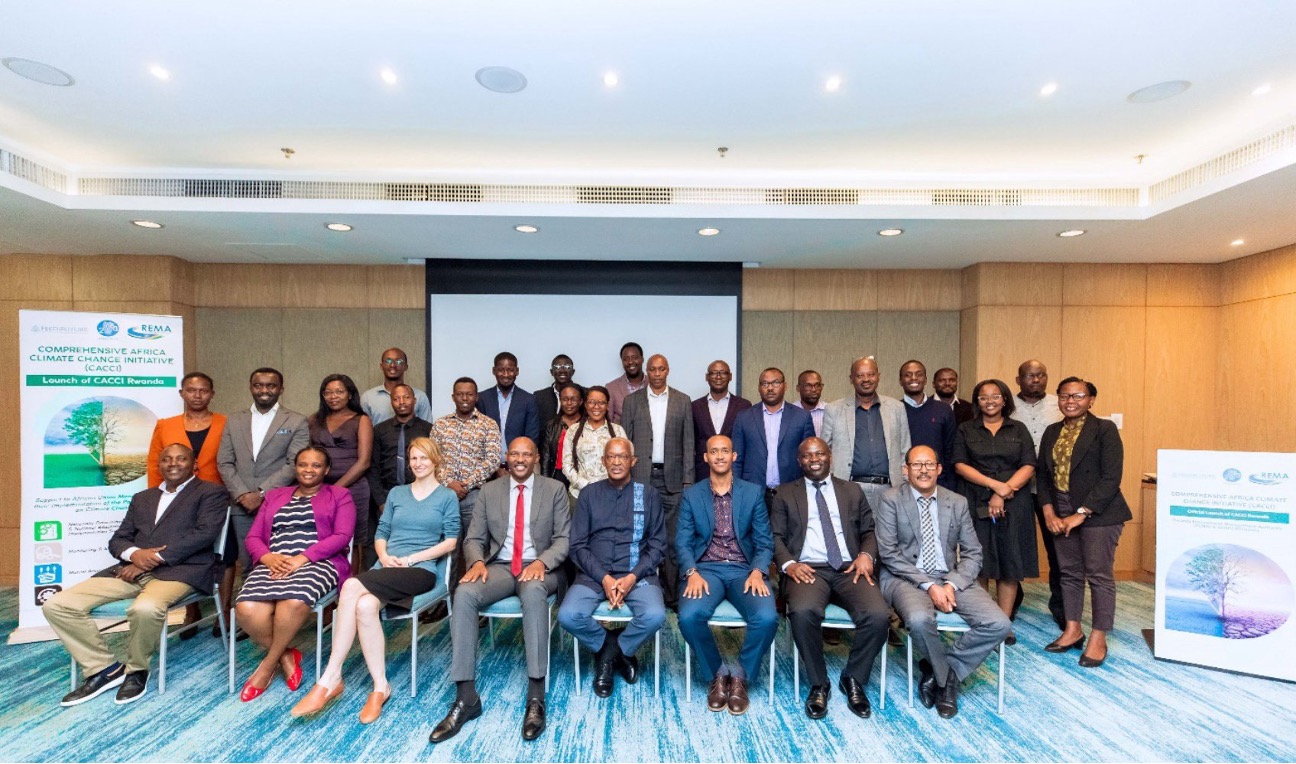
CACCI Rwanda launch, 2023
Response capacity: Thanks to its position on the continent and a responsive organizational strategy, AKADEMIYA2063 has the capacity to quickly respond to crises by supporting countries with data and analytics. For example, the organization examined the impacts of the COVID-19 pandemic on Africa’s food and nutrition security. AKADEMIYA2063 created nearly 50 knowledge products and organized over 20 webinars and dissemination workshops to discuss the results and policy recommendations with country stakeholders. The organization also responded quickly and robustly to the Ukraine crisis by analyzing its effects on African economies, releasing a series of 33 policy briefs covering 12 countries. Additionally, the institute took a leading role in preparing for the 2021 UN Food Systems Summit (UNFSS), which resulted in a variety of emerging priorities shaped by African voices, including the African common position on food systems.
Governance: Along with the transition to AKADEMIYA2063 came a new Board of Trustees, with members dedicated to Africa’s development agenda. Board members are all leading experts on Africa and its economic and agrifood systems transformation agenda. The board is well balanced: Half of its members are from African countries, and half are women. Starting with the Board and extending throughout the organization, strong local leadership is directing the work of the organization in response to knowledge demand. This includes making decisions on research priorities, capacity strengthening, partnerships, and communications and outreach.
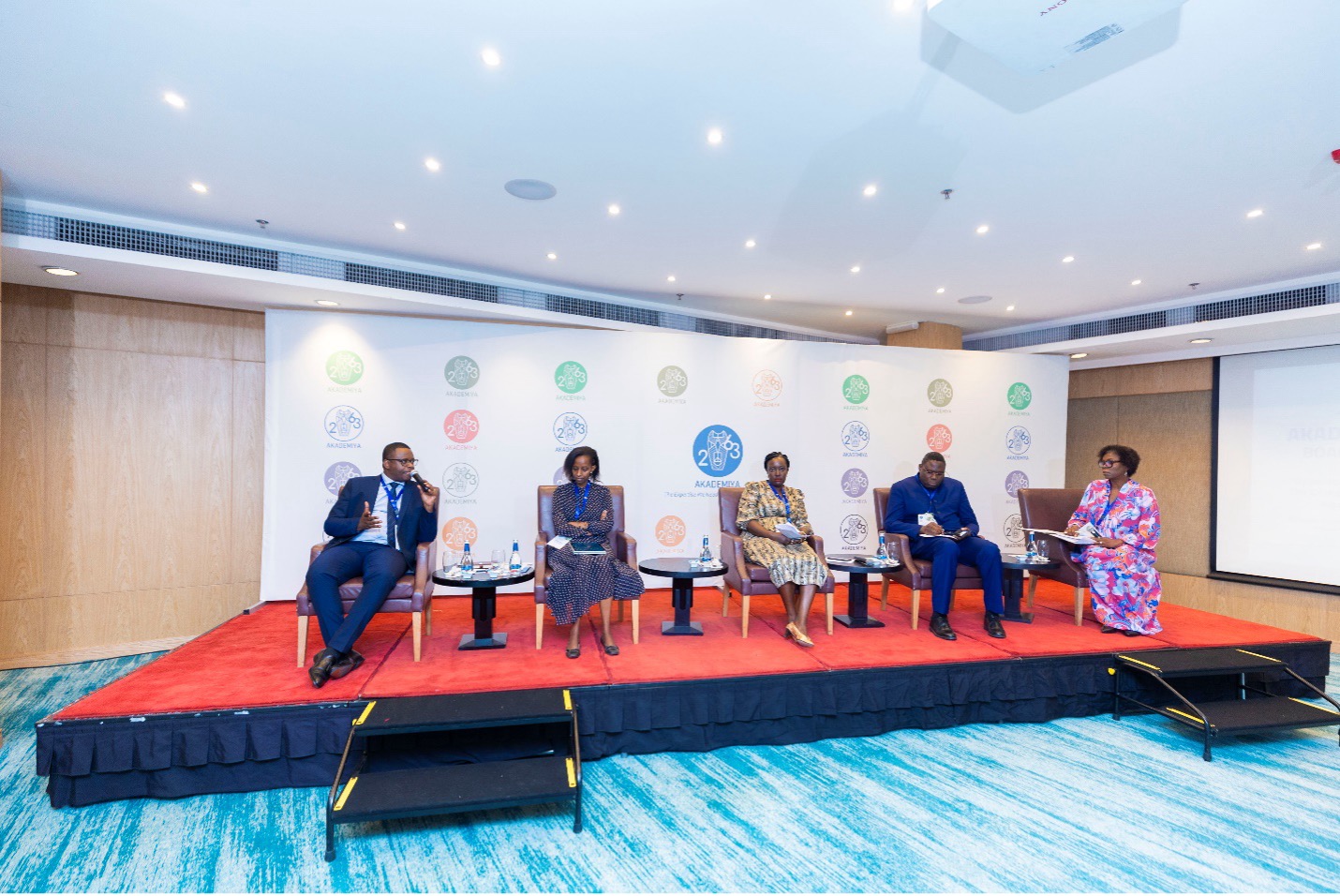
2023 Board Seminar, Kigali
Sustainability: At AKADEMIYA2063’s inception in July 2020, it had only four funders. By December 2022, it had 16 funders. Total funds raised increased from $11 million at the end of 2020 to $25 million as of June 2023. This is thanks to the organization’s efforts in effectively responding to knowledge and capacity needs on the ground, engaging stakeholders, and leveraging strategic partnerships to achieve its mission. These efforts have been key to AKADEMIYA2063’s efforts to successfully localize. The organization’s top longstanding funders include:

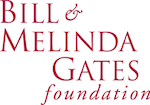


Localization in Retrospect: A Tangible Difference
Now that ReSAKSS, AGRODEP, and MaMo have been localized in Africa for over three years, it is possible to ask: What difference has it made? The answer: A world (better said, a continent) of difference.
Localization has enabled AKADEMIYA2063 to develop an organizational strategy that is embedded in and responsive to local agendas and knowledge demand. In turn, this has facilitated the mobilization of more financial resources to fund local and demand-driven research that addresses the needs of African stakeholders. The localization has helped to boost Africa’s capacity to partner strategically with global organizations and knowledge centers. AKADEMIYA2063 has also expanded local analytical capacities, including by increasing the AGRODEP membership and networks and strengthening local capacities to apply AI techniques, such as machine learning and remote sensing data.
AKADEMIYA2063 has successfully navigated the potential challenges of migrating programs, as it has been able to expand the work of each of the three, attract exceptional talent, grow its funding base, maintain, and expand strategic partnerships (including with IFPRI), ensure high-quality work, and thus maintain its credibility — all creating a solid foundation for the future of the organization.
AKADEMIYA2063’s work has contributed to efforts by policymakers to transform Africa’s agrifood systems. However, these efforts are often challenged by exogenous shocks and crises such as COVID-19 and the Russian-Ukraine war. Moving forward, locally based analysis by organizations such as AKADEMIYA2063 remains critical to guiding efforts by policymakers to address these challenges and accelerate progress toward agrifood system transformation.
Now more than ever, AKADEMIYA2063’s services are needed to continue to build capacity on the continent for the production and utilization of evidence for well-informed policymaking. Since relocating to AKADEMIYA2063, ReSAKSS, AGRODEP, and the MaMo Panel are better positioned to do just that. They serve as an example of a large program localizing successfully and — in so doing, becoming more sustainable over the long term. IFPRI is proud to be a part of AKADEMIYA2063’s journey, both in the past and as a strategic partner moving forward.
This blog post was first published as part of a special monthly series entitled “Making a Difference,” documenting the impact of IFPRI's projects and initiatives. These stories reflect the wide breadth of the Institute's research, communications, and capacity-strengthening activities around the world, in fulfillment of its mission. The blog series has been peer-reviewed by IFPRI's Impact Committee members.
